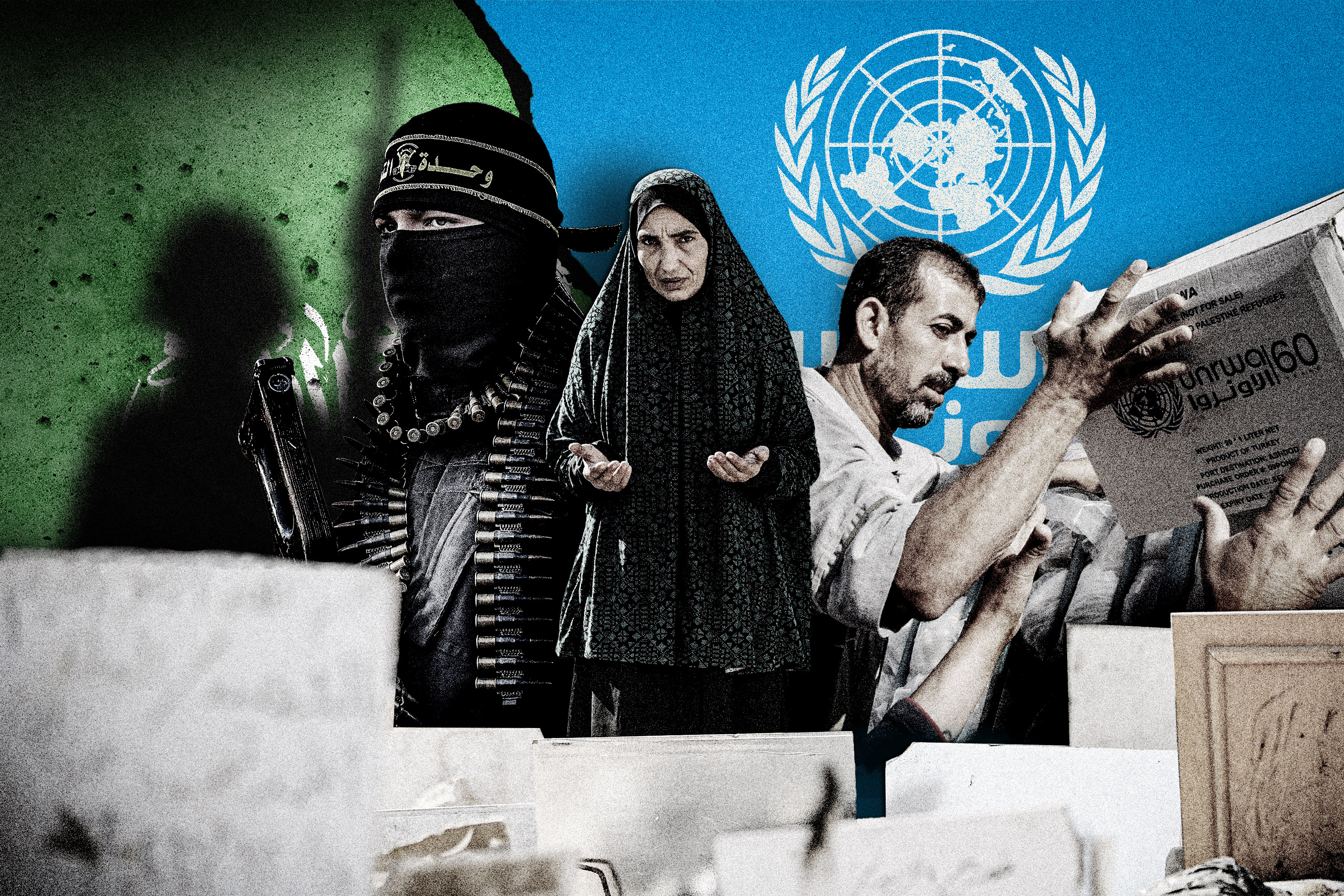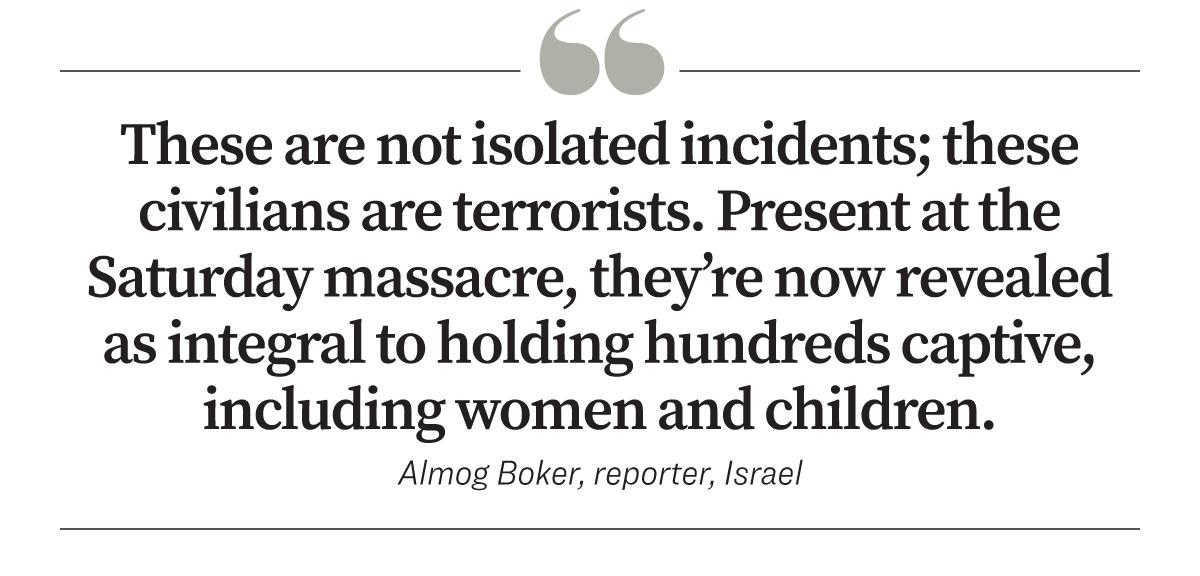A teacher from a U.N. agency is accused of holding an Israeli hostage in an attic.
The Israel Defense Forces says it found rockets near a school in Gaza.
The lower house of the Swiss parliament votes to cut funding to Gaza. In the United States, Republican senators say Congress should do the same.
All these recent incidents revolve around a controversial agency at the heart of a refugee crisis: the U.N. Relief and Works Agency for Palestine Refugees (UNRWA).
Some see UNRWA as a critical provider of services to beleaguered Arab populations in the Gaza Strip and the West Bank, which Israelis often refer to as Judea and Samaria. Others see it as an enabler of the crisis, an agency meant to perpetuate a “refugee” status that’s no longer applicable to most Palestinians, and doing so to obstruct any peace process indefinitely.
Many observers say it’s both—an essential provider of services and an obstacle to peace.
UNRWA’s defenders say it’s just doing the mission assigned by the United Nations almost three-quarters of a century ago.
Opponents say UNRWA is way too close to Hamas, the terrorist group that controls Gaza and triggered the current war with its Oct. 7 massacre of about 1,200 Israelis.
Defenders say Israel is an apartheid state based on immoral religious discrimination. Opponents say Palestinian Arabs displaced by Israel’s 1948 War of Independence should be resettled like the 135 other refugee groups overseen by the United Nations High Commissioner of Refugees (UNHCR).
The only refugee situation UNHCR doesn’t handle is that of the Palestinians.
“It was born in sin, it exists in sin, and it operates in sin,” Kobi Michael, a senior researcher at the Institute for National Security Studies at Tel Aviv University, said about UNRWA.
“This is a political organization that, at the beginning, served the interests of Arab states that didn’t want to absorb Palestinian refugees into their countries,” he told The Epoch Times.
“They don’t want to rehabilitate Palestinian refugees. They want to keep them in camps and perpetuate their refugee status. It is the central pillar of the Palestinian ethos. This is the excuse for their victimhood. This is why they can get money from the international community, and why they don’t have to be responsible.
“Unfortunately the international community cooperates with Palestine and UNRWA. Now, under the circumstances of the war, it can’t be dismantled. It’s needed for humanitarian aid. But after the war, the first thing that should be done is the dismantling of the UNRWA and the refugee camps in the Gaza Strip.”
Susan Akram, professor at the Boston University School of Law and director of its International Human Rights Clinic, told The Epoch Times she doesn’t think UNRWA is controversial in the least.
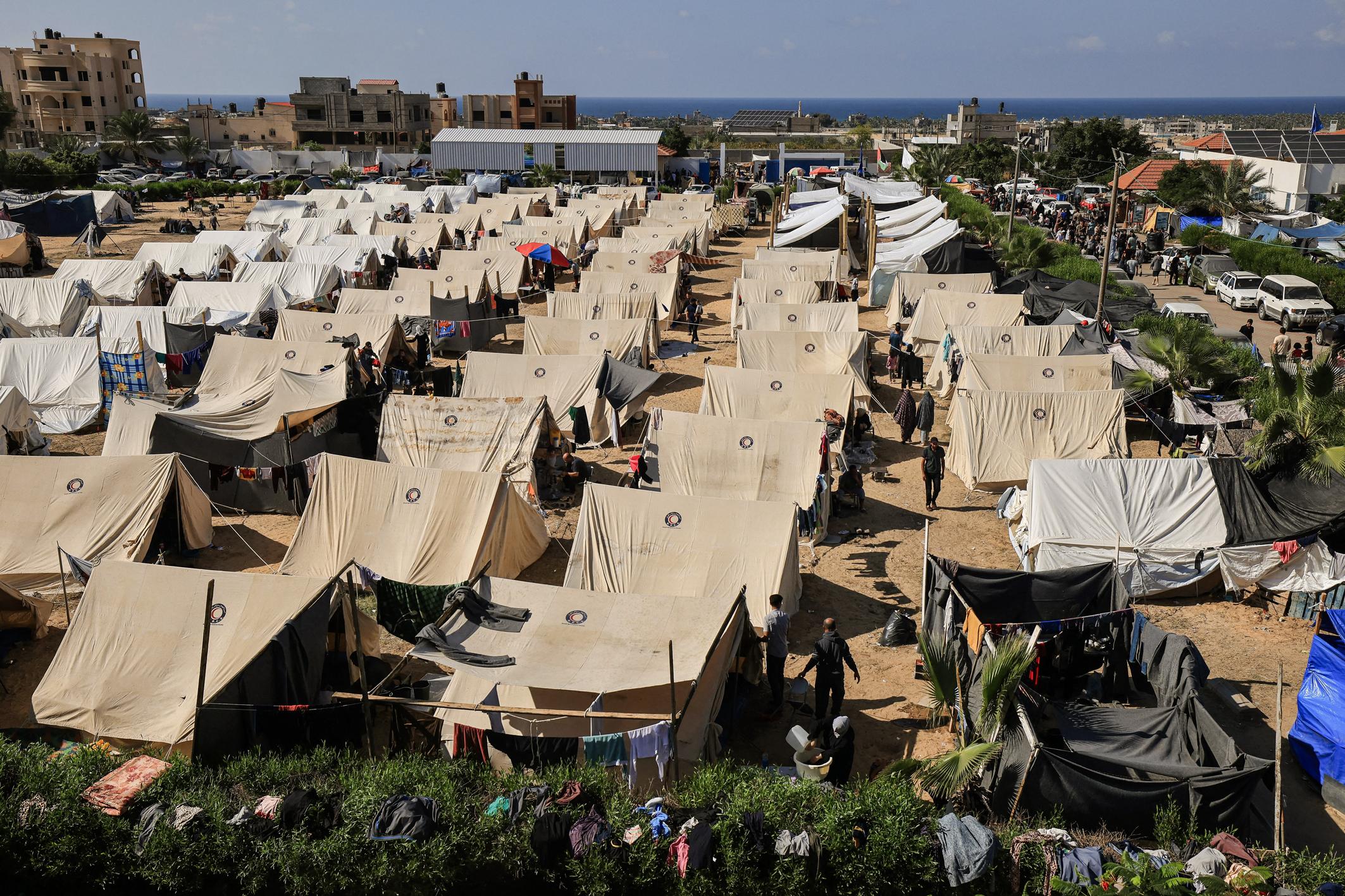
“It is pretty effective for those who approach it from the perspective of international law,” she said. “We would not call it controversial. UNRWA was established with a very particular mandate (given to it by the U.N. in 1949), and it has continued to carry out that mandate.”
How effective is it? Israelis across the political spectrum of that deeply divided country say it sponsors schools teaching hate to generations of Palestinian schoolchildren, making peace or a two-state solution impossible.
And Mr. Boker said another abductee had been held captive by a Gazan doctor simultaneously caring for children.
“These are not isolated incidents; these civilians are terrorists,” Mr. Boker said. “Present at the Saturday massacre, they’re now revealed as integral to holding hundreds captive, including women and children.”
On Dec. 1, 2023, in a public statement, UNRWA said it hadn’t been able to substantiate whether the Israeli journalist’s allegations about a UNRWA teacher holding an Israeli hostage were “genuine or false.”
“UNRWA reiterates that it takes all allegations of breach of U.N. principles extremely seriously and immediately investigates them,” the agency said.
“Defamation attacks and the spread of misinformation about UNRWA—from any side—directly endanger the lifesaving operations of the agency and its staff operating on the ground.”
Israel has long maintained that Hamas used schools and health facilities, which in Gaza are operated by UNRWA, to shield its terror operations.
“I felt that we are human shields,” the civilian said.
The Israeli military said on Jan. 3 that it had dismantled an 800-foot tunnel underneath Al Shifa Hospital in Gaza City, which UNRWA operates.
Hamas had destroyed documents and electronics just before the IDF’s Nov. 15 seizure of the hospital, a U.S. National Security Council spokesman said.
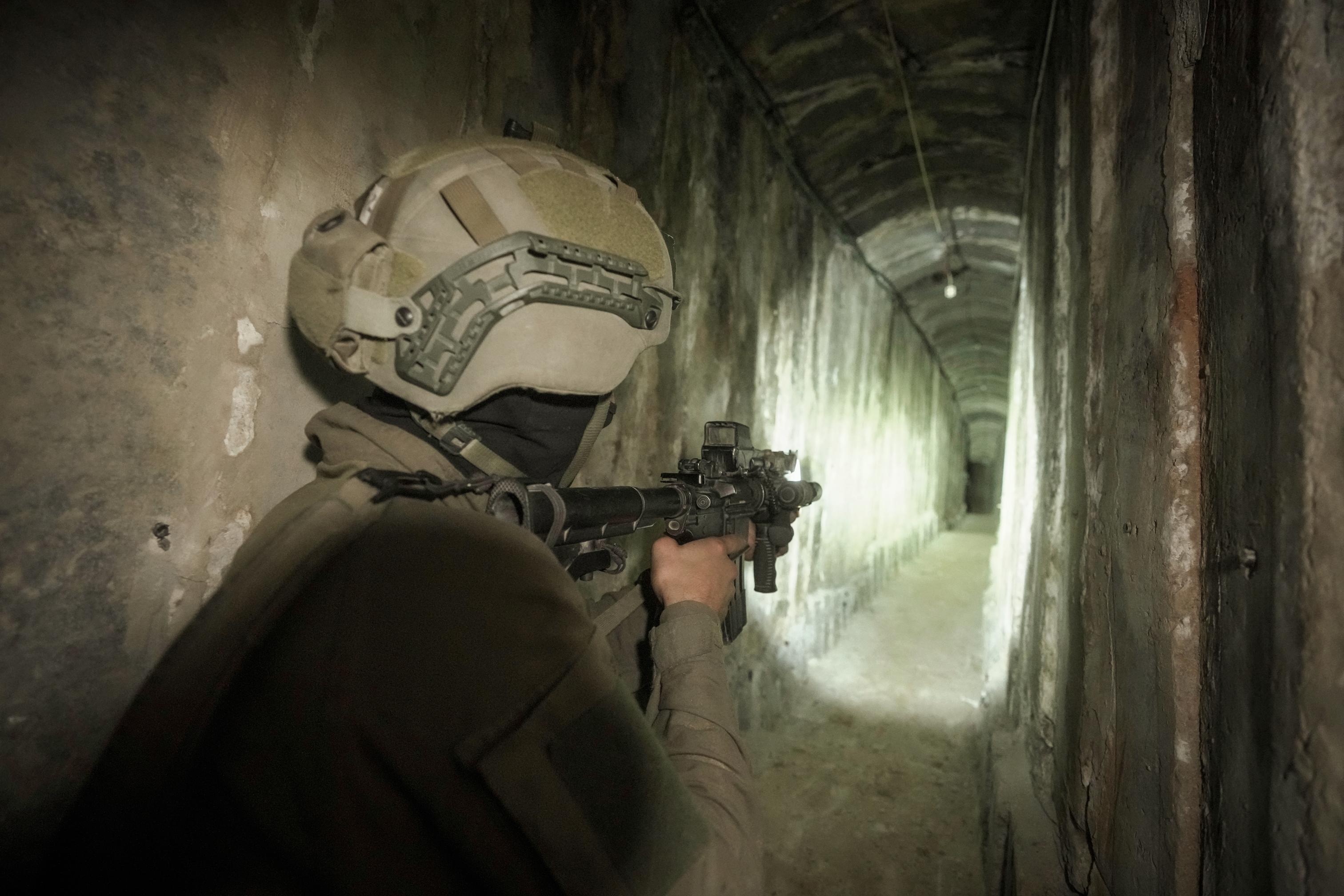
Birth of a Crisis
The refugee crisis began when the U.N. partitioned the land into two states, one for Jews and one for Arabs, in 1947. Israel took the deal. Local Arabs and surrounding Arab states did not. Their armies invaded Israel on the first day of its independence in 1948.Around 700,000 Arab residents fled, some out of fear, and others because they were encouraged to by Arab leaders, who assured them the war would be over in a few weeks.
A similar number of Jews fled Arab states in North Africa and the Middle East, places where Jews had lived for hundreds or even thousands of years. They came to Israel.
Some Arabs stayed in Israel. Today they are citizens, vote, and have representatives in Israel’s Knesset.
Are They Still Refugees?
Words like “refugees” and “refugee camps” can be misleading. They often don’t fit the realities on the ground. Gaza communities started 75 years ago look no different than areas around them, with permanent buildings decades old, occasional fancy villas, and a street grid. Families may be into their fourth and fifth generations living there. They may be marked off with gates setting them off from the adjoining city, but otherwise look the same.“When the general public thinks of a traditional United Nations refugee camp, we’re thinking of those tent camps set up on the borders of Syria, handling massive refugee populations out of the Syrian Civil War,” Eli Sperling, a teaching fellow at the University of Georgia’s Israel Institute, told The Epoch Times.
“We’re thinking tents. We’re thinking temporary infrastructure. We’re thinking something that resembles a camp.
“There is basically nothing that you would see while walking around these areas ... that would indicate this is a refugee camp.”
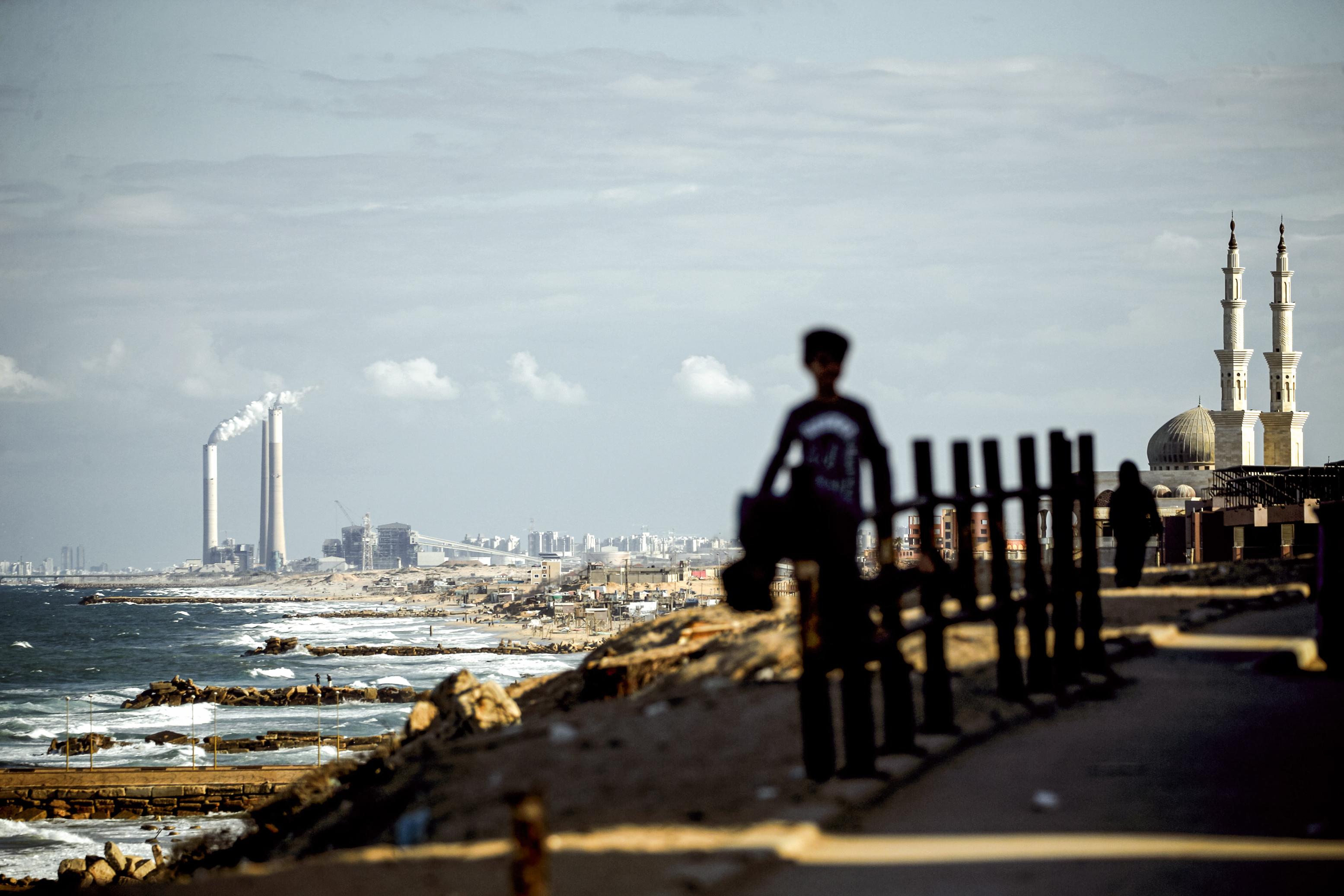
There are even fancy neighborhoods with villas in some of the “camps,” said Mr. Michael.
Ismail Haniyeh, the senior Hamas leader and chairman of its political bureau, is from the Al-Shati refugee camp. He bought a fine half-acre beachfront property in the adjoining Rimal neighborhood in 2010 and has lived in “a palace” in Qatar since 2019, Mr. Michael said. The Gaza house, occupied by his relatives, was destroyed by an IDF air strike in November.
Mr. Haniyeh’s net worth, largely stemming from Hamas’s 20 percent tax on goods imported through tunnels from Egypt, has been estimated to be as high as $4 billion.
Refugees are typically stateless people, Mr. Michael said. But Palestinians now hold various travel documents up to and including passports.
While estimates vary, some 2.18 million to 2.4 million Palestinian “refugees” in Jordan now are Jordanian citizens and hold Jordanian passports.
The Palestinian Authority declared statehood during the failed 1990s Oslo Accords peace process; it was accorded observer status by the U.N. General Assembly in 2012 but doesn’t vote.
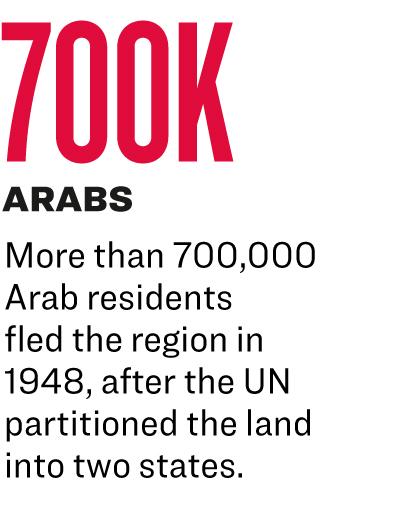
Palestinian refugees—and residents of the West Bank and Gaza who aren’t refugees because they always lived there—are Palestinian citizens and have Palestinian passports, Mr. Michael said.
Ms. Akram disagreed, saying their status and travel documentation are less secure than that, and that it doesn’t apply to all Palestinians who live in Jordan. The Palestinian Authority isn’t a state, and Palestinians still meet the definition of “stateless” under international law, she said.
Mr. Sperling acknowledged that while Palestinians’ documents can permit them to travel, such papers don’t have the same strength as formal passports.
One effect of UNRWA’s unique handling of Palestinian refugees, Mr. Sperling said: 700,000 Palestinian refugees in 1949 have grown to 5.9 million today.
Descendants of other refugee populations usually aren’t classified as refugees.
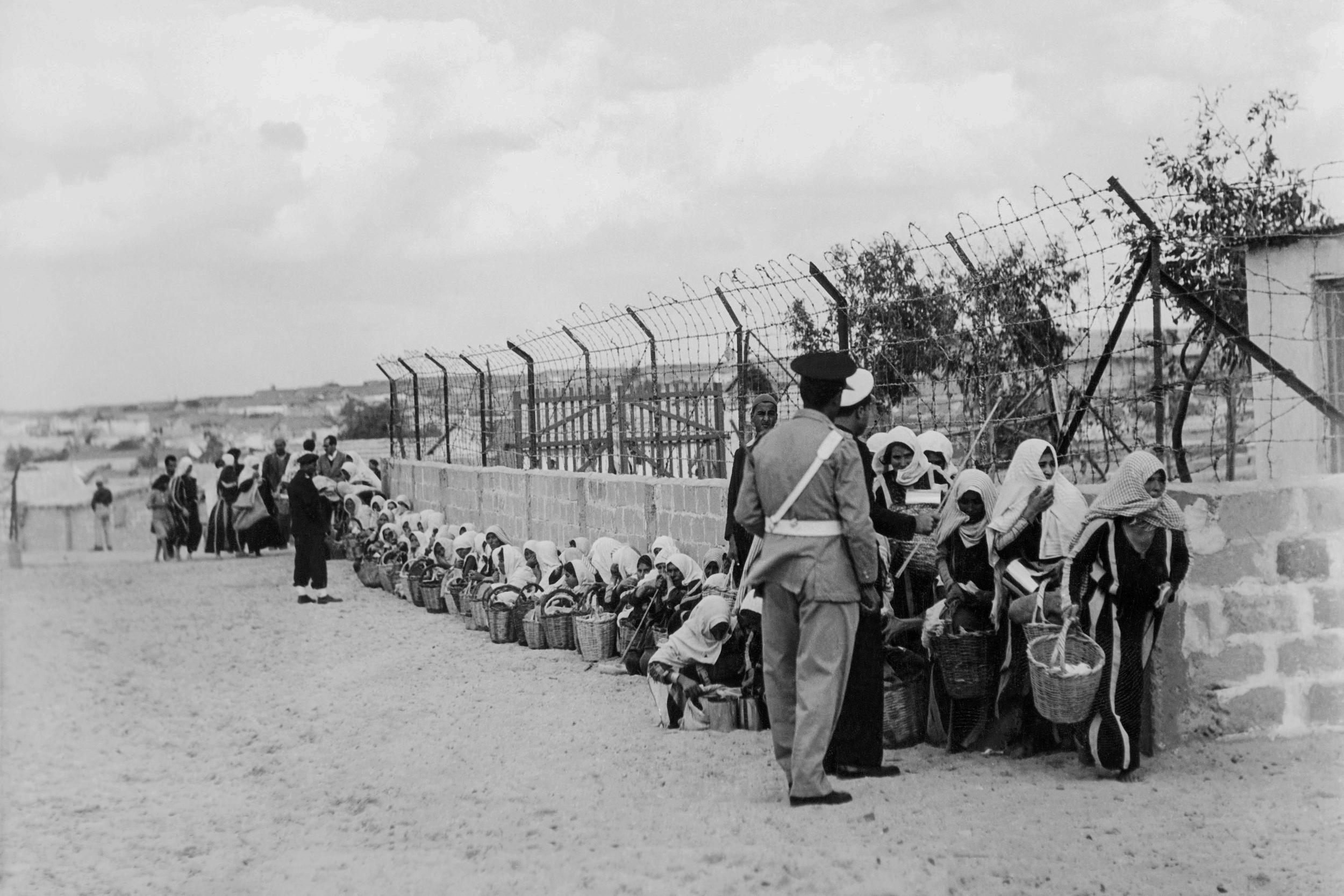
“Palestinian refugee status is inherited father to son,” Mr. Michael said. “We’re now talking about the fifth generation of Palestinian refugees. This doesn’t exist with regard to any other population of refugees in the world.”
Mr. Michael said that if those living in Gaza, the West Bank, and Jordan were no longer classified as refugees, the actual refugee population—those living in marginal existences in Syria and Lebanon—would shrink to around 300,000.
“UNRWA has not rehabilitated or resettled a single Palestinian refugee since it was established,” he said. “Instead of resettling and decreasing them, the numbers have only increased.”
What Does UNRWA Do?
UNRWA on its official website says its services to Palestinians include primary and vocational education, primary health care, relief and social services, infrastructure and camp improvement, microfinance, and emergency response, “including in situations of armed conflict.”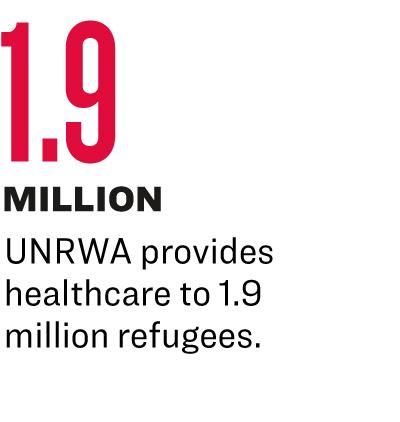
It provides health care for 1.9 million refugees, teaches 543,000 students, supports 400,000 refugees with a “social safety net,” and has provided 29,000 microfinance loans. It has aided 483,500 Palestinians caught up in the last decade’s civil war in Syria.
Mr. Michael questioned why UNRWA still provides services to Palestinians in, say, Jordan.
“Why doesn’t Jordan provide all services to Palestinians? They’re citizens,” he said. “Why does the Palestinian Authority not provide services to (those who live in the West Bank)?”
He answers his own question: UNRWA seeks to keep Palestinians in permanent refugee status and victimhood, living in “camps.”
“It doesn’t make sense that Palestinians are Palestinian citizens living under the authority of their state, hold a Palestinian passport, and yet have the status of refugees in their state. How is that?” Mr. Michael said.
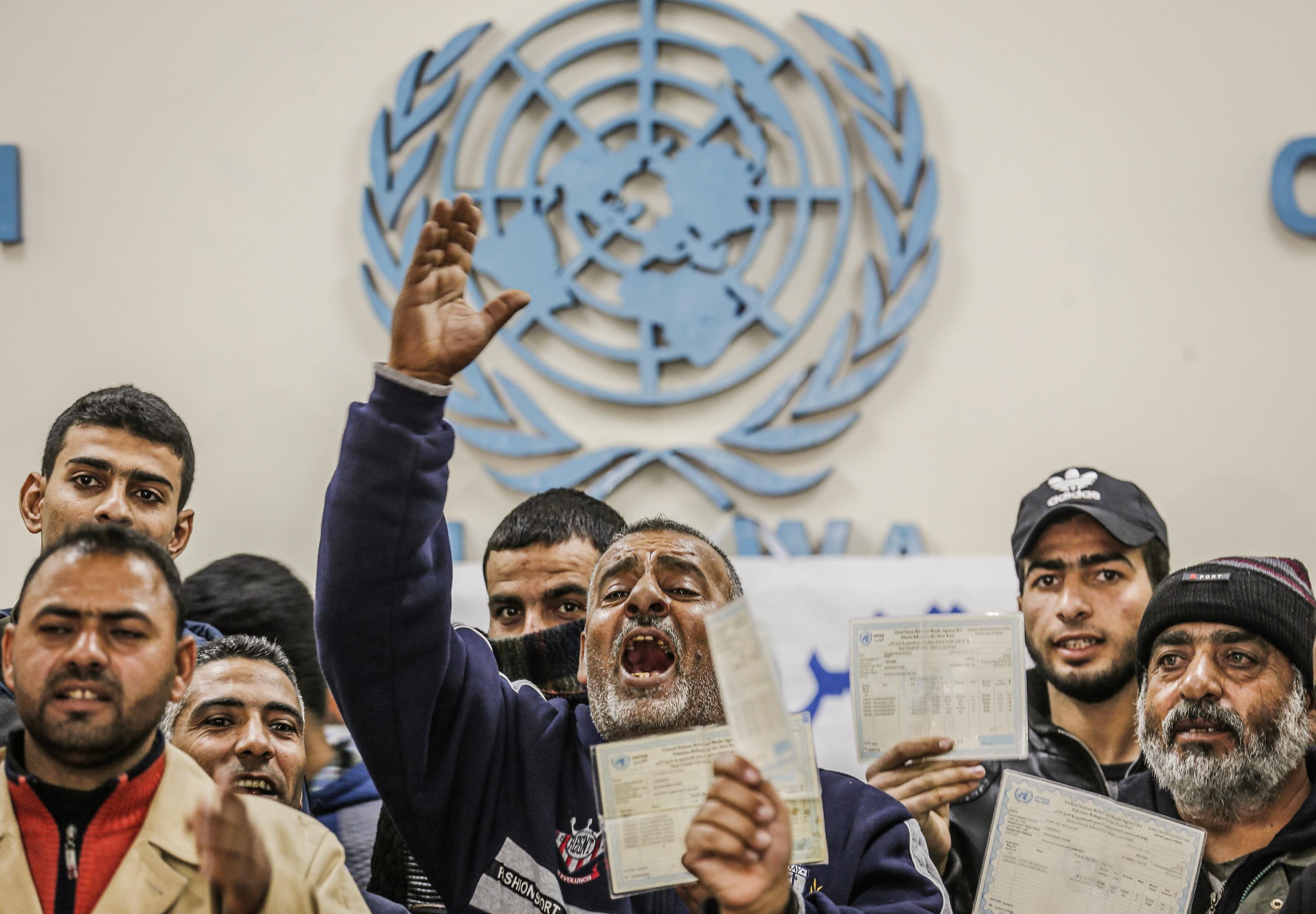
UNRWA provides essential humanitarian services in accordance with its charter, Ms. Akram said. While the UNHCR is required to work with states to provide durable solutions, “UNRWA has no such mandate.”
“It was there to provide food, clothing, and shelter to Palestinian refugees as long as they remain refugees,” Ms. Akram said.
They don’t have the mandate to resettle them, she said. And she suggested that’s because, in the U.N.’s eyes, they should ultimately return to what’s now Israel.
Ms. Akram disputed that UNHCR typically resettles refugees.
“Only 1 percent of the global refugee population is eligible for resettlement. The vast majority of (them) under UNHCR mandate remain in host countries without a durable solution,” she said. The Palestinian situation is thus similar to many of the others, she maintained.
UNRWA plays a big role in the Palestinian economy. It employs 33,000 people in Gaza, virtually all Palestinians, unique among the U.N.’s refugee efforts. And they’re considered good jobs.
“UNRWA has come to be an agency for the perpetuation of the Israel–Palestine conflict,” Mr. Michael said. “It’s a dysfunctional entity. Corrupt. In the Gaza Strip, it’s fully controlled by Hamas.”
He pointed to the released hostage’s allegation that he was held for almost two months in an UNRWA teacher’s attic.
“There are many who argue that UNRWA is too closely associated with Hamas,” Mr. Sperling said. “Because the vast majority of employees are Palestinians, they are seen as espousing the rhetoric of Hamas, even within UNRWA’s charter schools.”
With so many Palestinians employed by UNRWA, in an area where jobs are at a premium, there’s a strong disincentive for the refugee crisis to end, Mr. Sperling said.
What Gaza Schools Teach
UNRWA operates 706 schools educating just over 543,000 students. Of those, 380 schools and about 340,000 students are in Gaza and the West Bank.According to UNRWA’s website, the schools promote “values of tolerance, cultural identity, and gender equality.”
“UNRWA aims to ensure that Palestine refugee students develop their full potential and become confident, innovative, questioning, thoughtful, and open-minded, to uphold human values and tolerance, proud of their Palestinian identity and contributing positively to the development of society and the global community,” the website states.
A former U.S. congressman wrote recently, though, that he'd investigated what Palestinian children study while he was in Congress, from 2001 to 2017.
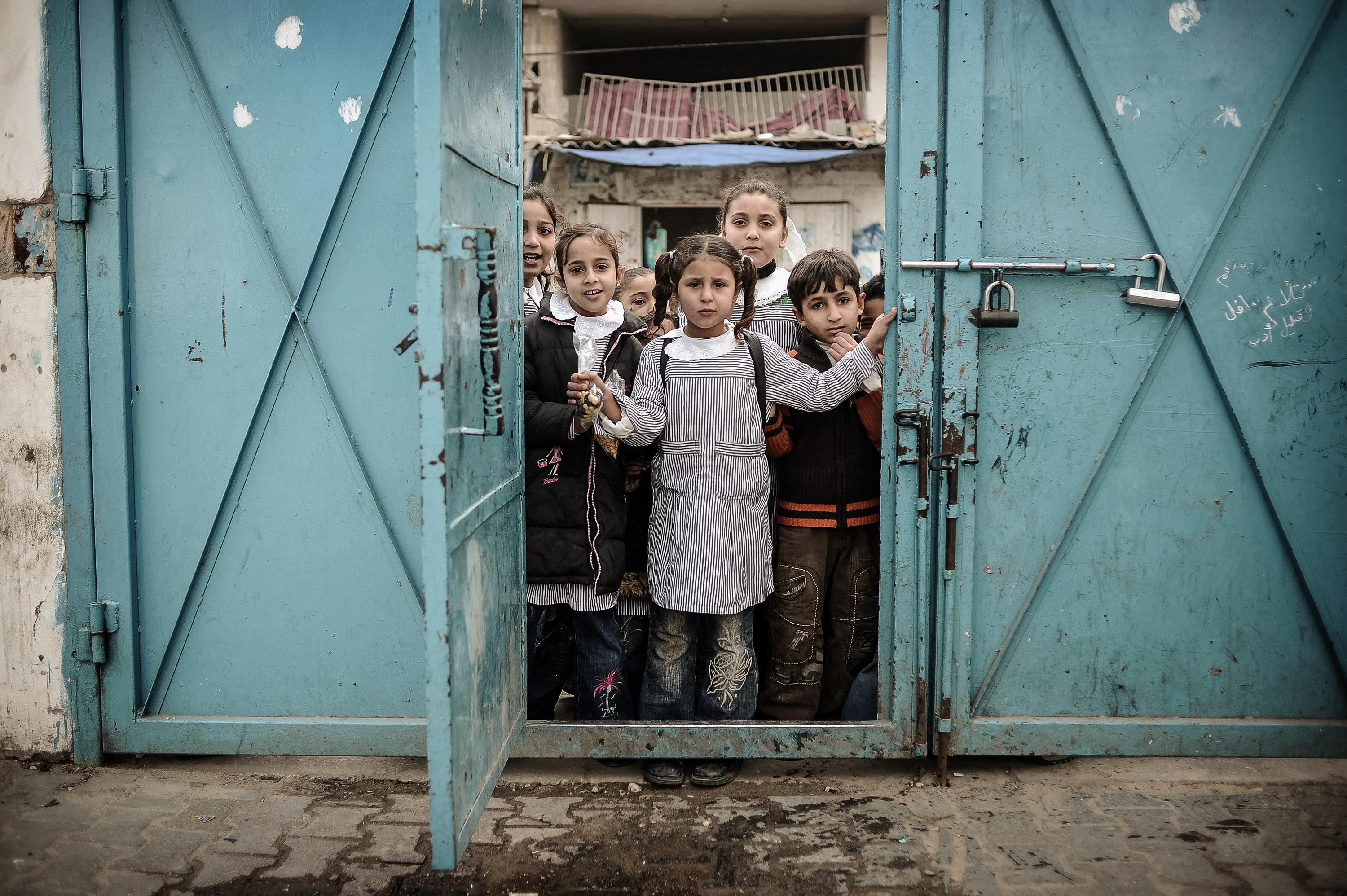
“I saw firsthand that a generation of Palestinian children were being taught at an early age to reject living peacefully with Israel. They read about it in their schoolbooks and heard about it from their teachers. They were raised on a steady curriculum of violent rejectionism. My colleagues and I in Congress were unable to change their reality.
“Now, as the world reels from the devastation of Hamas’ terrorism, understanding how Palestinian children are taught is essential to any discussion of the future in the region.
“The roots of this generation of Hamas terrorism resides in ideas fomented in Gaza’s education system for decades.”
But Hamas, in Gaza, had added programs, like a military training elective “and other teachings to infuse the next generation with its militant ideology,” Mr. Israel wrote.
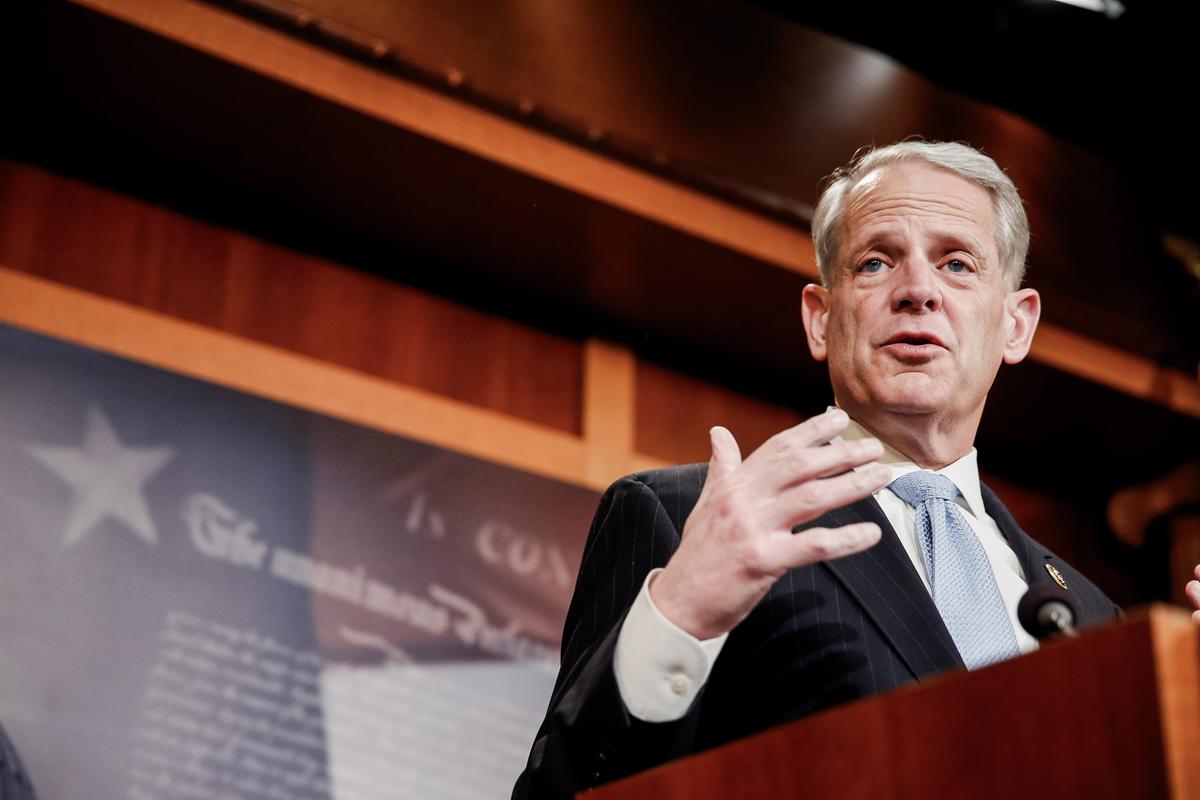
At that time, with 465,000 students in Gaza, UNRWA ran 250 schools grades one to nine, and Hamas 400 schools serving all grades, in addition to 46 private schools, the Times said. In 2013, Hamas decreed gender-segregated schools from the age of 9 and criminalized any contact between schools and Israel.
These efforts at indoctrination have worked, Mr. Michael said. A poll conducted by Palestine’s Bir Zeit University showed that 75 percent of all Palestinians celebrated the Oct. 7 massacre, he said.
“We are talking about a very, very ill society,” with a national consciousness that is “something broken, ill. That 75 percent of the entire Palestinian population supports the massacre of Oct. 7 is one of the outcomes of 30 years of poisoning the hearts and minds of these people. With all the poisoning process carried out by the Palestinian Authority, Hamas, and UNRWA.”
Education wasn’t part of UNRWA’s mandate, Mr. Michael said. But almost 60 percent of the agency’s $1.6 billion annual budget now goes to education.
“What do they educate in Gaza and in other schools?” he said. “They indoctrinate the children of Gaza and the children of the West Bank and East Jerusalem to hatred and demonization of the state of Israel and to hate Jews. They educate them for resistance against Israel, for violence against Jews.
“They nurture the Palestinian ethos based on two major pillars: the right of return (tied to) refugeehood, and armed resistance against Israel.”
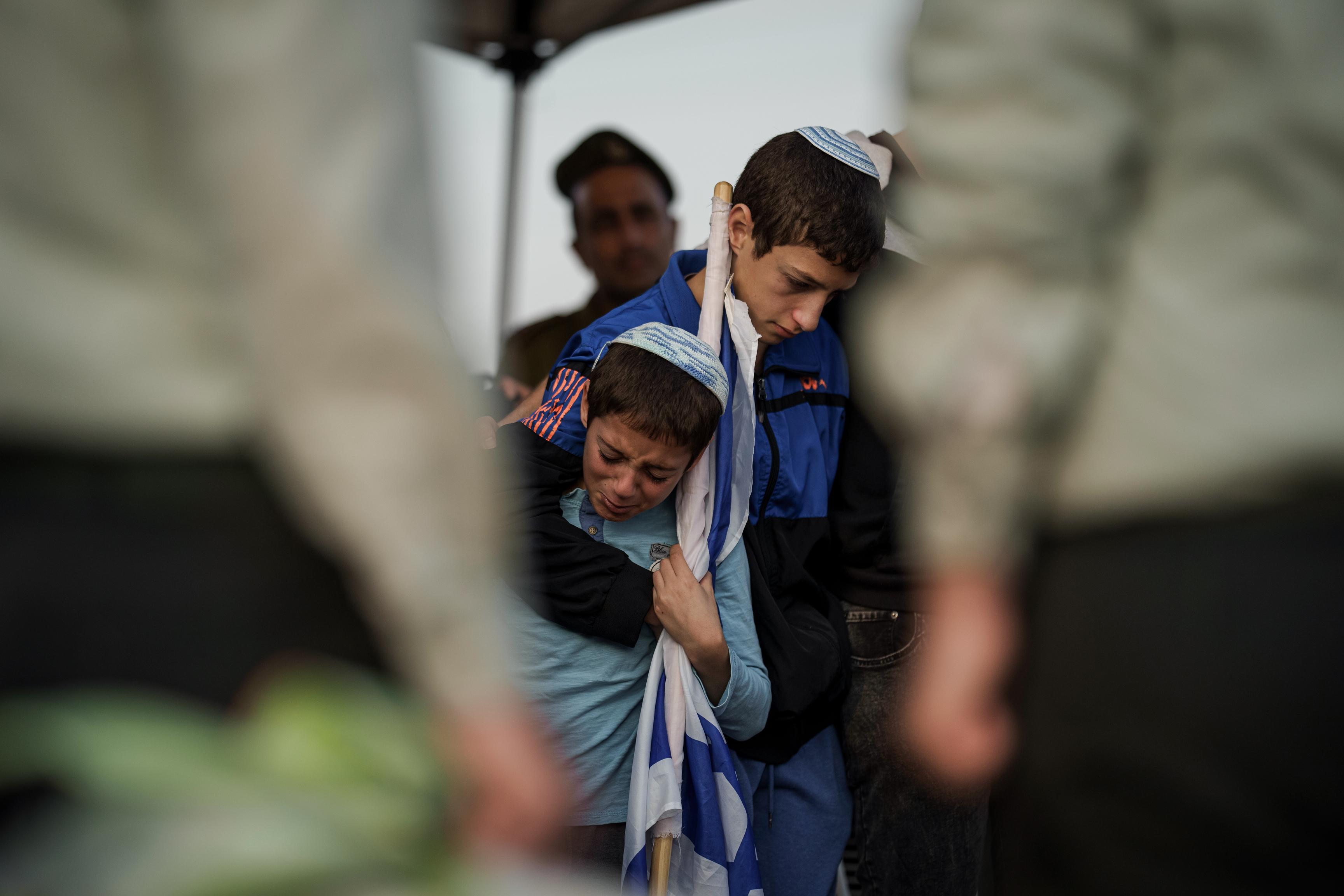
Perpetuating refugee status, he said, means teaching them that although they’ve lived where they lived for several generations now, it’s not their home. They are trained to regard the places of their ancestors, in what is now the nation of Israel, as their home.
“It’s a perpetuation of the conflict,” Mr. Michael said.
UNRWA, operating in Gaza, may not have much choice but to go along with the host government, Ms. Akram said.
She rejected as “absolutely untrue” claims that children in Gaza have been taught to idealize martyrdom, resistance, and suicide bombing. But she acknowledged that U.N. agencies operating schools have “to carry out the curriculum that’s authorized by the area where it is.” UNRWA schools in Jordan or Syria must use the same curriculum those countries use in the schools they operate, she said.
Ms. Akram said she saw nothing wrong or unrealistic with teaching Palestinians that they have a right to return to Israel because, she said, Israel has no right to be a Jewish state.
Tunnels, Arms, and Rockets
The IDF, as of Dec. 19, 2023, said it had found 1,500 Hamas tunnel shafts and underground passages since the start of the war. On Dec. 6, 2023, it announced it had uncovered one of the largest weapons caches ever found in Gaza near a school and hospital.Israel says that this enormous infrastructure, and the wherewithal to attack Israel on Oct. 7, and over the years, was funded significantly with money diverted from the billions in aid sent to Gaza.
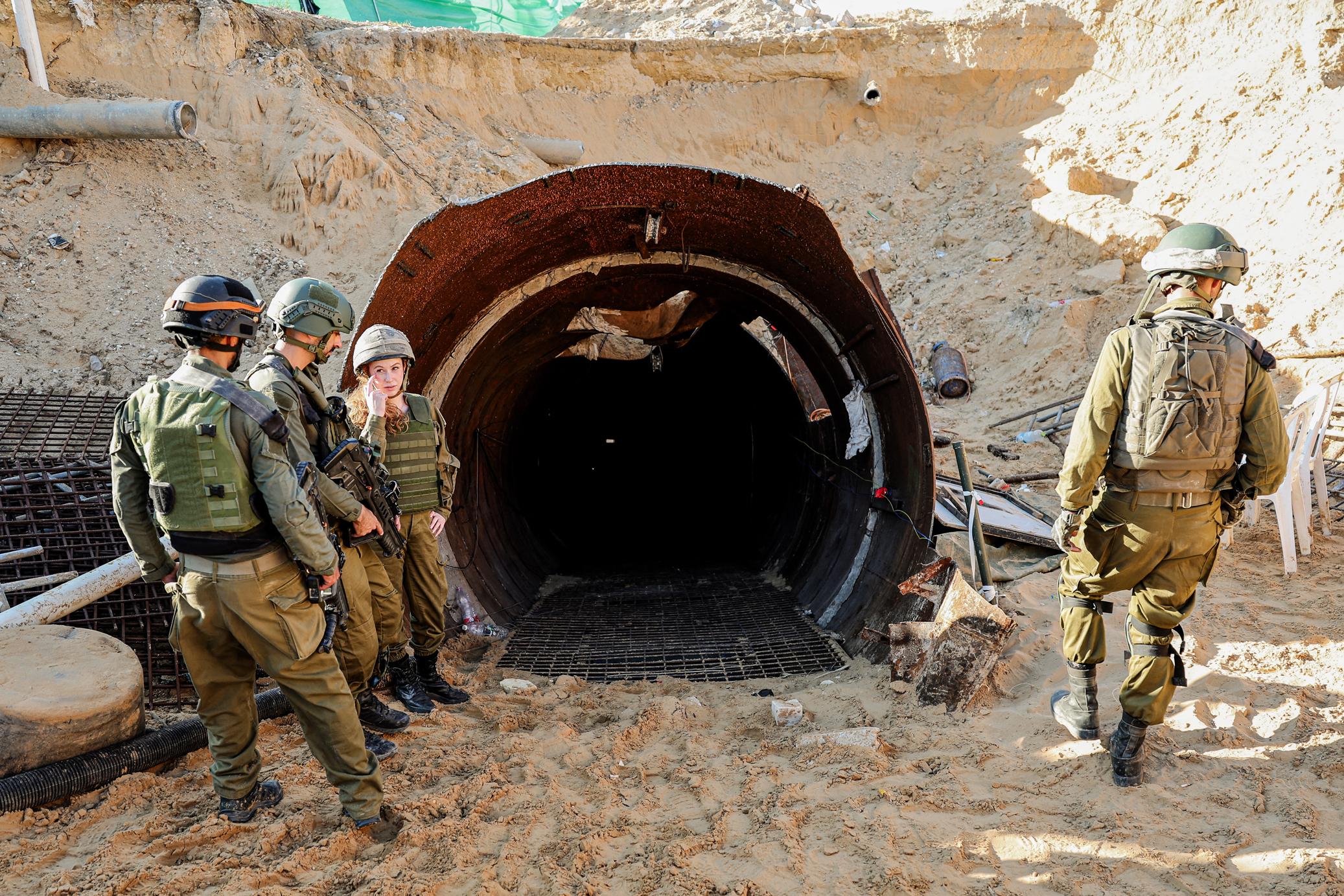
After Israel loosened restrictions on imports to Gaza and began letting thousands of Gazans into Israel daily to work, Hamas created new tariffs. And ahead of the attacks, it cut the salaries of civil servants.
Israel tried and convicted the head of a Christian charity operating in Gaza, World Vision International, on charges that he diverted $50 million meant for charity to Hamas. The charity’s former Gaza director, Mohammed El-Halabi, was convicted of funding terrorism and is serving a 12-year prison sentence.
The charity said it hasn’t had a Gaza presence for almost eight years, that the charges are baseless, that an independent agency investigated and found no diversion of money, and Mr. El-Halabi is appealing his sentence.
Evidence recovered by Israel after the Oct. 7 attacks was telling. At the Be'eri kibbutz, one dead attacker had in his pocket a paycheck for the equivalent of $1,260, a very high salary in Gaza, from the Palestinian Interior Ministry.
An abandoned pickup truck used in the attack had in it a first-aid kit from UNICEF, the U.N. Children’s Fund.
After a previous round of fighting in 2014, Israel, Qatar, and the U.N. went to significant lengths to ensure that Qatari aid to Palestinians got to the intended recipients rather than going to Hamas.
“I’m unable to say, based on evidence, that UNRWA has taken money and diverted it directly to Hamas officials to line their pockets,” Mr. Sperling said. “With that said, I’m certain, as a scholar who’s been studying this conflict for many years, that money that comes into the Gaza Strip through UNRWA is siphoned up to corruption, and certainly parts of that funding are used for the war.”
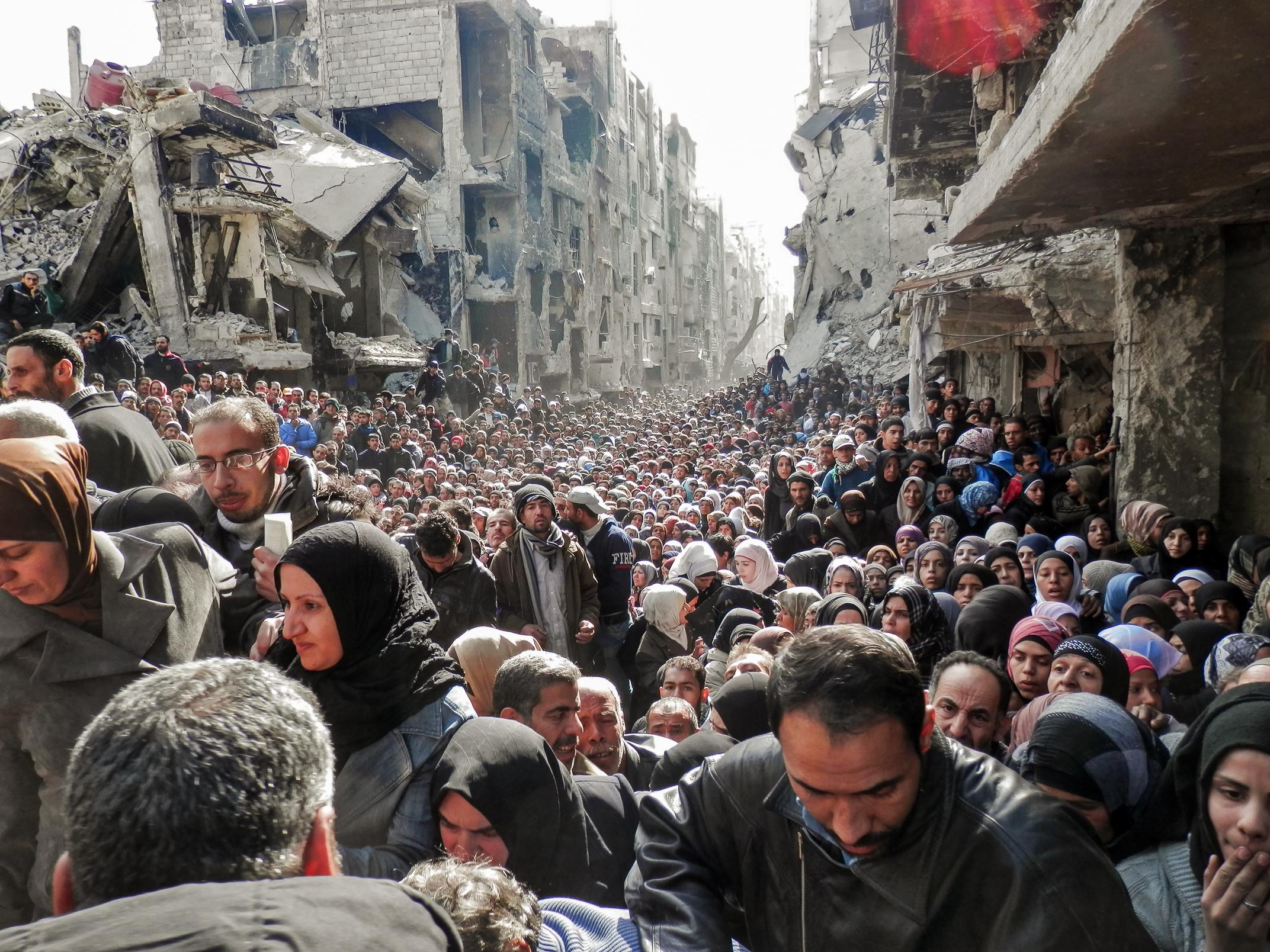
After the War
What will happen when the war is over? Israel, having retaken the Gaza Strip, will face decisions like whether and how long to stay, who should rule it, who should provide civil administration, and what to do about UNRWA.Arab countries have traditionally blocked any revisiting of UNRWA’s mission at the United Nations, Mr. Sperling said.
Mr. Sperling, an expert on the Abraham Accords secured by the Trump administration, noted that most of the Gulf States and Saudi Arabia now want peace with Israel because the trade and technology that come with that are in their interest. Bahrain and the UAE already formalized peace with Israel in 2020, followed by Morocco and Sudan.
Fear that Saudi Arabia’s talks with Israel were headed in the same direction is seen by many as what prodded Hamas to start a self-destructive war with Israel.
The peace process notwithstanding, Mr. Sperling said he doubts Arab states will drop their resistance to altering UNRWA’s role any time soon. It wouldn’t be their style to make such a bold move.
“They tend to focus on quiet transactional partnerships, quite often even contradicted by their public statements,” he said.
For many Israelis, though, a reconsideration is long overdue.
